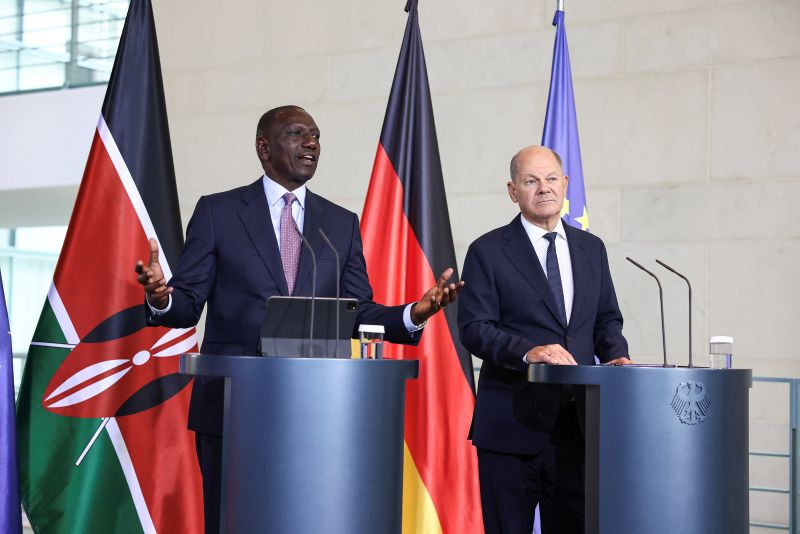Germany has struck a controlled migration deal with Kenya, which will see Berlin open its doors to skilled and semi-skilled Kenyan workers.
The deal was signed by German Chancellor Olaf Scholz and Kenya’s president William Ruto on Friday. Ruto landed in Germany on Friday for an official two-day visit.
While the exact number of workers that will arrive in Germany has not been disclosed, a spokesperson for Kenya’s presidential office previously said it was looking at employment opportunities for up to 250,000 Kenyans.
Migration is a major flashpoint in Germany, and has fueled the rise of the far-right Alternative for Germany (AfD) party. Germany welcomed more than one million people during the migrant crisis of 2015-2016 and more recently took in large numbers of Ukrainians fleeing Russia’s invasion.
The agreement comes as Scholz’s government launches a crackdown on illegal immigration, recently announcing a tightening of border controls. Late last month, Berlin unveiled new security measures aimed at speeding up the deportation of rejected asylum seekers and undocumented immigrants which will begin next week.
As well as deterring irregular migration, the deal is intended to address labor market needs in both countries, providing opportunities for Kenyan workers while supplementing an ageing Gemany’s shortage of skilled laborers. It also intends to simplify the repatriation of Kenyans who are in Germany illegally.
The two countries agreed to step up their cooperation on repatriation, with the introduction of measures such as the use of biometric data to identify those who are required to leave Germany.
Expired passports and identity cards will now also be accepted as travel documents to facilitate repatriation.
According to the German government, there are currently around 14,800 Kenyan citizens living in Germany. Around 800 of them are required to leave the country.
Interior Minister Nancy Faeser said she was “very pleased” with the outcome.
“We want to consistently enforce the repatriation of people without a right to remain – this is an important building block for limiting irregular migration. We have made good agreements for this,” she said.
“On the other hand, we want to attract qualified workers, who we urgently need in many areas of our economy.”
The German Interior Ministry adds that it is in confidential talks with several other countries regarding migration agreements.
The new security package came in the wake of a fatal attack in the western city of Solingen, in which three people were stabbed to death on August 23.
The suspect was identified as a 26-year-old Syrian man with alleged links to ISIS, who had previously been due for deportation.

























